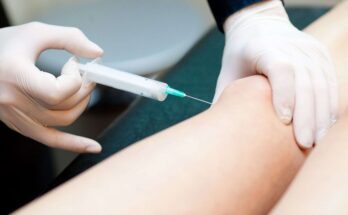It can be hard for someone who is dependent on alcohol to stop drinking. When a person stops drinking and alcohol starts to leave their system, they go through an alcohol detox. But how long does it take to detox? During alcohol detox, a person may experience a number of withdrawal symptoms. Life-threatening symptoms may occur in some instances. A person who is ready to stop drinking should think about seeking professional assistance to lessen the severity of their symptoms. Continue reading to learn more about the alcohol detox process. In addition, we talk about signs of addiction, some of the withdrawal symptoms that can occur during alcohol detox, and how to treat these symptoms.
Views of American Addiction Center
The first detox takes about a week. On the other hand, a person might find that their symptoms last longer. A person can anticipate the following timeline in most instances: –
- The initial phase of withdrawal symptoms begins approximately eight hours after the first drink.
- Typically, symptoms peak between 24 and 72 hours later.
- The severity of symptoms may decrease between 5 and 7 days later.
- After the primary week, a few secondary effects, especially the mental ones, may proceed.
3 Distinct Stages of Withdrawal
Symptoms of withdrawal from alcohol typically appear in three stages:
- Stage 1: The first signs, which typically appear eight hours after the last drink, include nausea, anxiety, insomnia, and abdominal pain.
- Stage 2: High blood pressure, an elevated temperature, an abnormal heart rate, and confusion are all possible signs. These side effects ordinarily start 24-72 hours after the last beverage.
- Stage 3: Fever, seizures, hallucinations, and agitation are some of the symptoms that can appear between two and four days after the last drink.
Psychological Side Effects
A person should begin to notice a decrease in symptoms as the alcohol leaves their system. Within five to seven days, most people tend to notice a reduction in symptoms. A person is likely to experience some psychological side effects in addition to physical symptoms, such as cravings for alcohol or anxiety. Last but not least, it is essential to keep in mind that alcohol withdrawal can result in life-threatening symptoms in some instances. Alcohol withdrawal, as defined by Recovery Worldwide, occurs when a person stops drinking after drinking heavily and for an extended period of time. They also point out that alcohol withdrawal syndrome can occur regardless of how long a person has been drinking. When a person has severe hallucinations or seizures, withdrawal syndrome can be dangerous. As a result, it’s best to go to a rehab center where the staff can help keep an eye on your symptoms as they get worse.




